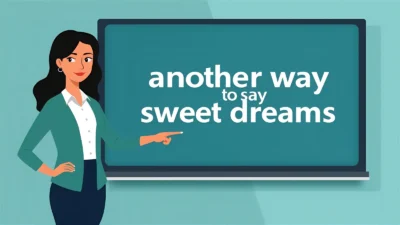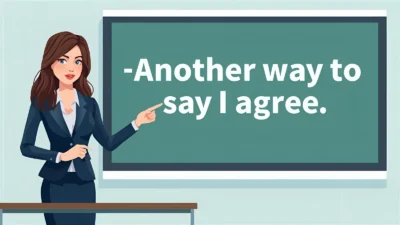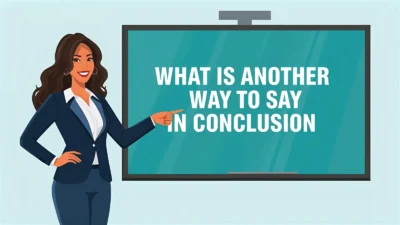The phrase “good luck” is common and friendly, but in professional contexts—like business emails, job interviews, or workplace communication—it can feel too casual or generic. Using more professional alternatives allows you to encourage, motivate, or support others while maintaining an appropriate tone.
In this article, you’ll find 48 professional alternatives to “good luck,” each with its meaning, explanation, usage example, best context, and tone.
1. Wishing You Success
Meaning: Expresses hope for positive results.
Example: “Wishing you success in your upcoming project.”
Best Use: Business emails, project send-offs.
Tone: Professional, supportive.
2. Best Wishes
Meaning: A formal and courteous way to encourage.
Example: “Best wishes on your presentation tomorrow.”
Best Use: Workplace communication, emails.
Tone: Polite, professional.
3. All the Best
Meaning: A simple, warm send-off.
Example: “All the best with your new assignment.”
Best Use: Professional yet friendly communication.
Tone: Neutral, encouraging.
4. Wishing You the Best
Meaning: Slightly more personal than “best wishes.”
Example: “Wishing you the best on your new role.”
Best Use: Emails, career changes.
Tone: Professional, warm.
5. Here’s to Your Success
Meaning: Toast-like encouragement.
Example: “Here’s to your success in the upcoming campaign.”
Best Use: Speeches, team motivation.
Tone: Confident, uplifting.
6. Much Success Ahead
Meaning: Hopes for long-term positive results.
Example: “Wishing you much success in your future endeavors.”
Best Use: Farewell notes, professional networking.
Tone: Formal, positive.
7. May You Succeed
Meaning: Formal encouragement.
Example: “May you succeed in your efforts to expand the business.”
Best Use: Ceremonial, formal settings.
Tone: Respectful, uplifting.
8. Best of Luck
Meaning: A polished, professional version of “good luck.”
Example: “Best of luck with your client meeting tomorrow.”
Best Use: Business correspondence, interviews.
Tone: Neutral, courteous.
9. Continued Success
Meaning: Recognizes past achievements and wishes for more.
Example: “Wishing you continued success in your leadership role.”
Best Use: Career milestones, promotions.
Tone: Professional, respectful.
10. May It Go Well
Meaning: Professional encouragement for an event.
Example: “May it go well with your upcoming negotiations.”
Best Use: Emails, mentoring.
Tone: Formal, thoughtful.
11. Every Success
Meaning: A polished, British-English phrasing.
Example: “Wishing you every success with the new proposal.”
Best Use: Professional letters, international business.
Tone: Polite, elegant.
12. With Confidence in Your Abilities
Meaning: Shows belief in someone’s competence.
Example: “With confidence in your abilities, I know the presentation will go smoothly.”
Best Use: Manager-to-employee encouragement.
Tone: Supportive, motivational.
13. Hope It Goes Well
Meaning: Neutral alternative with positive intent.
Example: “Hope it goes well at the client pitch today.”
Best Use: Professional chats, emails.
Tone: Friendly, encouraging.
14. Here’s Hoping for a Great Outcome
Meaning: Highlights optimism.
Example: “Here’s hoping for a great outcome in the negotiations.”
Best Use: Workplace discussions.
Tone: Optimistic, supportive.
15. I’m Confident You’ll Do Well
Meaning: Encourages by expressing belief.
Example: “I’m confident you’ll do well in the board presentation.”
Best Use: Manager feedback, peer encouragement.
Tone: Motivational, professional.
16. Trusting It Will Go Smoothly
Meaning: Shows faith in a positive outcome.
Example: “Trusting it will go smoothly during your transition to the new role.”
Best Use: Emails, leadership communication.
Tone: Calm, professional.
17. Knock It Out of the Park
Meaning: Encouraging, with a confident tone.
Example: “I know you’ll knock it out of the park at tomorrow’s presentation.”
Best Use: Professional but friendly relationships.
Tone: Energetic, motivational.
18. All Success to You
Meaning: Simple, formal encouragement.
Example: “All success to you in this important project.”
Best Use: Professional notes, cards.
Tone: Formal, positive.
19. Here’s to a Positive Outcome
Meaning: Optimistic way to close.
Example: “Here’s to a positive outcome in your upcoming evaluation.”
Best Use: Workplace settings, networking.
Tone: Hopeful, professional.
20. Go Succeed
Meaning: Direct and motivating.
Example: “Go succeed in making your vision a reality.”
Best Use: Speeches, leadership communication.
Tone: Encouraging, inspiring.
21. Hoping for Your Success
Meaning: Wishing for favorable results.
Example: “Hoping for your success in the grant application.”
Best Use: Professional correspondence.
Tone: Polite, supportive.
22. May You Achieve Great Things
Meaning: Looks beyond the immediate task.
Example: “May you achieve great things in your new role.”
Best Use: Career growth encouragement.
Tone: Formal, uplifting.
23. Sending Positive Thoughts
Meaning: Encouragement with empathy.
Example: “Sending positive thoughts for your presentation tomorrow.”
Best Use: Friendly professional relationships.
Tone: Warm, supportive.
24. May the Odds Be in Your Favor
Meaning: A light, professional way to wish well.
Example: “May the odds be in your favor during the negotiations.”
Best Use: Semi-formal, lighthearted communication.
Tone: Positive, slightly playful.
25. Rooting for Your Success
Meaning: Shows active support.
Example: “We’re rooting for your success with the product launch.”
Best Use: Team communication, leadership.
Tone: Supportive, professional.
Conclusion
While “good luck” works in casual contexts, professional communication benefits from alternatives that sound more polished and supportive. Use formal choices like “wishing you success,” “continued success,” or “may you achieve great things” in business writing, and friendly-professional options like “all the best,” “hope it goes well,” or “knock it out of the park” in workplace conversations. By tailoring your wording, you can sound encouraging while maintaining professionalism.



